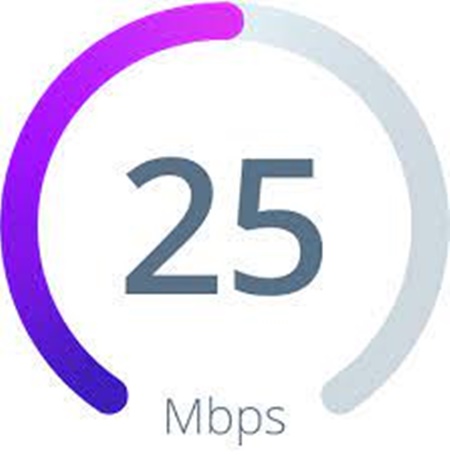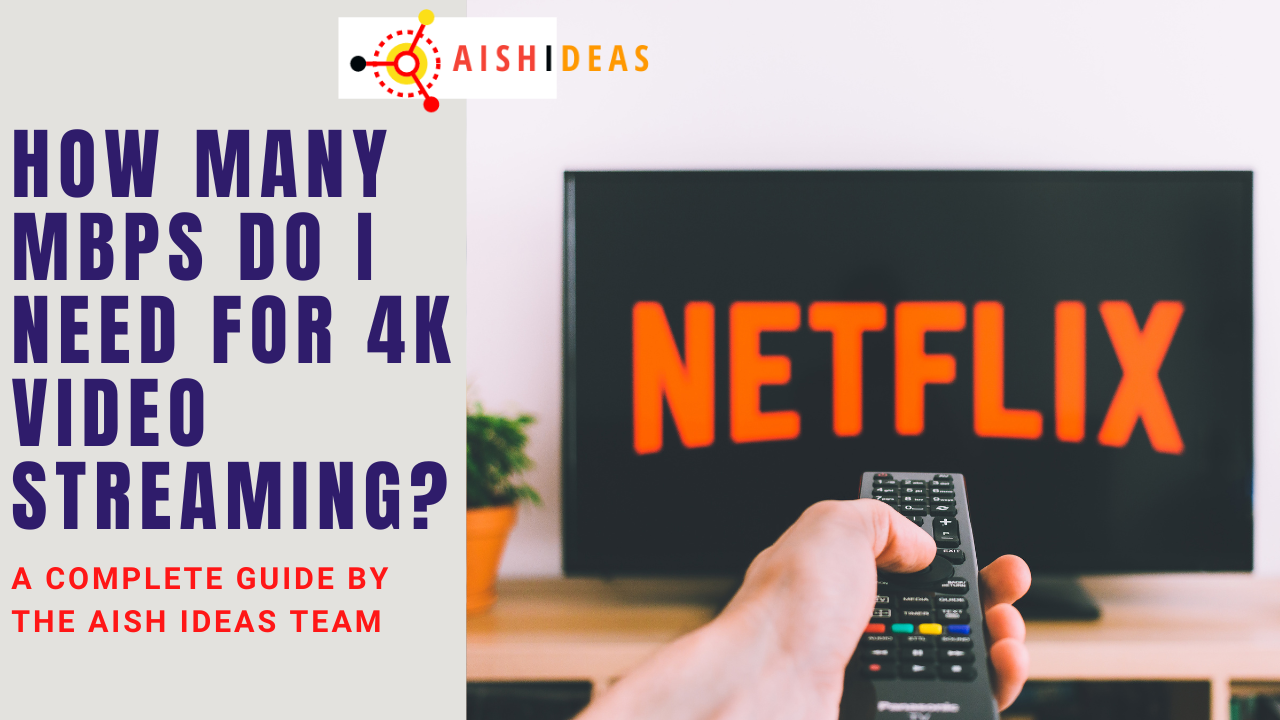4K video streaming is the latest advancement in streaming technology. It offers a higher resolution than traditional streaming, allowing you to see images in greater detail. This means that videos look sharper and more realistic, with finer details and fewer compression artifacts. 4K video streaming also requires a faster internet connection than traditional streaming, so it’s not suitable for everyone.
4K video streaming is becoming more and more popular, but what internet speeds do you need in order to support it? The answer may surprise you. Most people think they need a much higher Mbps than they actually do. In this article, we will explore what speeds are necessary for 4K streaming and” How Many Mbps Do I Need For 4K Video Streaming?”
Contents
What Is 4K Video Streaming?
4K video streaming is the next big thing in the world of online video. 4K refers to the resolution of the image, with 4,000 pixels horizontally. That’s four times as many pixels as standard 1080p HD. The increased resolution provides a crisper, more lifelike picture that is especially noticeable when watching sports or nature documentaries.
But what does that mean for you? Well, if you’re using a desktop computer or laptop, you’ll need a 4K monitor to take full advantage of the resolution. And even then, not all websites and videos will be available in 4K. You’ll also need a fairly powerful computer to stream 4K content without buffering or other problems.
How Many Mbps Do I Need For 4K Video Streaming?
There is no definitive answer to this question as it depends on a variety of factors, such as the type of content you are streaming and your internet service provider’s (ISP) bandwidth capacity. However, a good rule of thumb is that you will need at least 25 Mbps of internet to stream a 4K video without any buffering or quality issues.

If you are trying to watch 4K video on a device that doesn’t have a lot of processing power, such as a Smartphone or tablet, you may need even more Mbps to get smooth playback.
If you are not sure how much bandwidth your ISP offers, you can test your download speed using one of the many online speed tests available. This will give you an idea of what speeds are available in your area and whether or not they will be sufficient for streaming 4K content.
Factors That Affect Mbps Requirements
In order to stream 4K content, you need a fast and reliable internet connection. Netflix recommends a minimum of 25 Mbps for streaming in Ultra HD. These factors are the following:
1. Distance from the router
When it comes to figuring out your Mbps requirements, one of the key factors you’ll need to take into account is how far away you are from your router.
The further you are from your router, the slower your internet speed will be. This is because the further away you are, the more distance the signal has to travel to reach you.
2. Number of devices using the internet simultaneously
The number of devices that use the internet simultaneously is the main factor in Mbps requirements. If you have a lot of devices connected to the internet at once, you will need a higher Mbps to maintain a good connection for all of them.
A family of four would likely need at least 25 Mbps to surf the web, watch Netflix, and play games online without any buffering or lag. However, if you’re only using one device or if there are only two people in your household, you could probably get away with 5-10 Mbps.
3. Walls and floors between your device and the router
The distance between your device and the router can affect your Mbps requirements. Walls and floors between your device and the router can reduce signal strength, resulting in a decrease in Mbps.
The thicker the wall or floor, the greater the reduction in signal strength. If you are experiencing a decrease in Mbps, try moving your device closer to the router.
4. interference from other wireless signals
One factor that affects Mbps requirements is interference from other wireless signals. If there are too many signals competing for the same airwaves, it can slow down or even halt transmissions.
This is especially true for devices that use the 2.4GHz frequency band, which is shared by a wide range of electronics, including microwaves, cordless phones, and Bluetooth devices.
To get around this issue, you can try to move your router to a more central location in your home or office or invest in a dual-band router that operates on both the 2.4GHz and 5GHz frequencies.
5. Age of your router and modem
When it comes to Mbps requirements, there are many factors that come into play. One of the most important factors is the age of your router and modem. If you have an older router or modem, your speeds may be limited.
Additionally, the factor of your distance from your provider’s central office will affect your speed. If you are located far away from the central office, you will likely need a higher Mbps than someone who is located closer.
6. Quality of your internet service plan
One major factor is the quality of your internet service provider’s network. The better the network, the fewer problems you’ll likely experience with your connection.
Another thing that can affect your service quality is the distance between you and your provider’s central office or data center. The closer you are, the faster your connection will likely be.
Finally, congestion on the provider’s network can also impact your service quality. When too many people are using the network at once, speeds can slow down significantly.
Comparing 4K Streaming Services
Look down:
1. Netflix
Netflix is the most popular streaming service with over 137 million subscribers. The service requires a minimum speed of 5 Mbps for HD quality and 25 Mbps for Ultra HD quality.

2. Hulu
Hulu is a close second with 20 million subscribers. The service requires a minimum of 3 Mbps internet speed for HD quality and 8 Mbps for Ultra HD quality.
3. Amazon Prime Video
Amazon Prime Video has over 100 million subscribers and requires a minimum speed of 3 Mbps for HD quality and 15 Mbps internet for Ultra HD quality.
4. HBO
Finally, HBO Now has 5 million subscribers and requires a minimum speed of 3 Mbps for HD quality and 12 Mbps for Ultra HD quality.
FAQs Ask By People:
People ask the following questions about 4K video streaming:
What Mbps is good for 4K streaming?
For starters, the resolution of the 4K content you are streaming will affect how much Mbps you need. Standard HD video requires 3-5Mbps, while Ultra HD video requires 25Mbps or more. Additionally, your internet service provider’s (ISP) bandwidth capacity and your distance from the ISP’s servers will also impact how well you can stream 4K content.
Can 30 Mbps stream 4K?
The answer is “yes.” According to Netflix’s own speed test, a 30 Mbps connection can stream 4K content with little to no buffering. However, your results may vary depending on your Internet Service Provider (ISP) and the quality of your network.
If you’re experiencing buffering or low-quality video, try upgrading to a higher bandwidth plan or using a different device.
Is WIFI fast enough for 4K streaming?
The average WIFI speed is not fast enough to support 4K streaming. Most people have a WIFI speed of 50 Mbps or below, which is not fast enough to stream 4K content without buffering.
Even if you have a WIFI speed of 100 Mbps or above, you may still experience buffering with 4K content. If you are looking to stream 4K content, it is best to use a wired connection.
What router do I need for 4K streaming?
If you need a router for 4k streaming then Linksys EA8300 Max-Stream router is the best option. This router has a powerful processor that can handle multiple tasks at once, making it perfect for streaming 4K content. It also has MU-MIMO technology, which allows it to send data to multiple devices simultaneously.
Is 25Mbps enough for 4K Streaming?
Yes, 25Mbps is enough for 4K streaming, but it may not be the best quality. You can get a higher quality stream by increasing your bandwidth.
Conclusion
In conclusion, you will need at least 25Mbps to stream 4K content without any buffering. If you have a slower connection, you may experience buffering and choppy video. To ensure the best streaming experience, be sure to test your internet speed and upgrade to a plan with higher speeds if needed.
It is still possible to enjoy your favorite shows and movies with a connection of just 15 Mbps. If you are looking to achieve the best possible quality, however, we recommend a connection of at least 25 Mbps.

